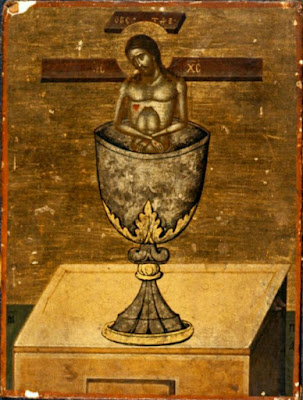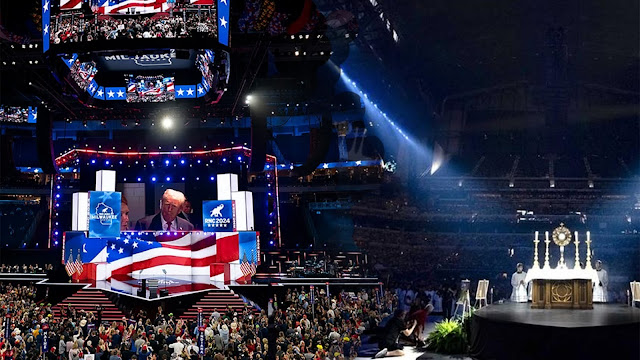Perhaps it is simply a matter
of the particular feet I have known—
my own and others—
but I generally don’t think
of feet as beautiful.
St. Thomas Aquinas says that beautiful things
have three qualities—
wholeness, harmony, and brightness—
and that beauty can be defined
as what is pleasing to us when we see it.
While most of our feet are whole,
in the sense that they are not missing parts,
they are rarely harmonious or bright,
and at least mine
are not very pleasing when seen.
People can spend a lot on pedicures,
trying to make their feet beautiful,
but I suspect it’s a losing battle;
feet are simply too battered by the work
of taking us from place to place,
too calloused and prone to bunions,
for it to ever be a gratifying experience
to gaze upon them.
Maybe like me you got socks for Christmas,
which is probably the best chance we have
for making our feet beautiful.
of the particular feet I have known—
my own and others—
but I generally don’t think
of feet as beautiful.
St. Thomas Aquinas says that beautiful things
have three qualities—
wholeness, harmony, and brightness—
and that beauty can be defined
as what is pleasing to us when we see it.
While most of our feet are whole,
in the sense that they are not missing parts,
they are rarely harmonious or bright,
and at least mine
are not very pleasing when seen.
People can spend a lot on pedicures,
trying to make their feet beautiful,
but I suspect it’s a losing battle;
feet are simply too battered by the work
of taking us from place to place,
too calloused and prone to bunions,
for it to ever be a gratifying experience
to gaze upon them.
Maybe like me you got socks for Christmas,
which is probably the best chance we have
for making our feet beautiful.
Yet the prophet Isaiah proclaims this morning:
“How beautiful upon the mountains
are the feet of him who brings glad tidings.”
How beautiful the feet of those
who announce peace,
bear good news,
proclaim salvation to those
whose world lies in ruins.
How beautiful the feet
that walk the path that leads
from heaven to earth and back again,
bearing tidings that rejoice our hearts.
And what are those glad tidings?
“The Word became flesh
and made his dwelling among us,
and we saw his glory,
the glory as of the Father’s only Son,
full of grace and truth.”
The Word of whom St. John speaks
is the agent of divine artistry,
the source within the life of God
of the wholeness, harmony, and brightness
that belongs by right to God’s creation,
this world that so pleased God
when God saw its goodness.
But this world’s wholeness
had been shattered by human sin,
its harmony had gone out of tune,
its brightness had faded.
The glad tidings of the Word made flesh
is that the creation grown
fragmented, discordant, and shabby
has been invaded by the beauty of its creator
and made whole, harmonious, and bright
once again.
For though past messengers
spoke in partial and various ways,
in these last days the Word of God himself—
the refulgence of the Father’s glory,
bearing the very imprint of God’s being,
the source of creation’s primordial
wholeness, harmony, and brightness—
restores our ruined nature in himself,
retunes our hearts to the music of the spheres,
brings his brightness to our darkness.
The artist who first created the universe
has come to us to restore his great work of art.
The glad tidings of Christmas
are the glad tidings of beauty recovered.
In recent weeks, many of us marveled
at images of the beauty of the restored
cathedral of Notre Dame in Paris;
that a structure so tragically damaged
could be made whole again.
But as glorious as such restoration is,
it is only a dim reflection
of what God has done for the world
in Jesus Christ,
if we but have the eyes to see it.
For the eyes of faith,
what is broken will be made whole,
what is twisted will be made straight,
what is dimmed will be made bright.
For the eyes of faith, light shines
in the uncomprehending darkness
and the world even now bears the image
of divine beauty, ever-ancient, ever-new.
These glad tidings are given to us
to be given to others.
Though the world is restored in Christ,
we still must journey toward his final victory
through times that are troubled,
and on our pilgrimage through time
our hearts, like our feet,
can grow calloused and battered;
the light that shines in the world’s darkness
can seem to grow dim as we grow weary;
the sound of glad tiding can become
a fading echo in our ears.
to be given to others.
Though the world is restored in Christ,
we still must journey toward his final victory
through times that are troubled,
and on our pilgrimage through time
our hearts, like our feet,
can grow calloused and battered;
the light that shines in the world’s darkness
can seem to grow dim as we grow weary;
the sound of glad tiding can become
a fading echo in our ears.
But how beautiful upon the mountains
are the feet of those who brings glad tidings.
The faith that allows us to see and hear
the beauty Christ has restored to the world
grows in us as we share it with others
through words and actions
of wholeness, harmony, and brightness.
Not just our weary, journey-worn feet,
but even our weary, journey-worn souls,
are made beautiful by the tidings of beauty
that we bear to the world.
are the feet of those who brings glad tidings.
The faith that allows us to see and hear
the beauty Christ has restored to the world
grows in us as we share it with others
through words and actions
of wholeness, harmony, and brightness.
Not just our weary, journey-worn feet,
but even our weary, journey-worn souls,
are made beautiful by the tidings of beauty
that we bear to the world.
Let the joy of this day’s tidings ring out
in wholeness, harmony, and brightness
for God has come to dwell among us,
full of grace and truth and mercy.
And may God, in his mercy,
have mercy on us all.
in wholeness, harmony, and brightness
for God has come to dwell among us,
full of grace and truth and mercy.
And may God, in his mercy,
have mercy on us all.














